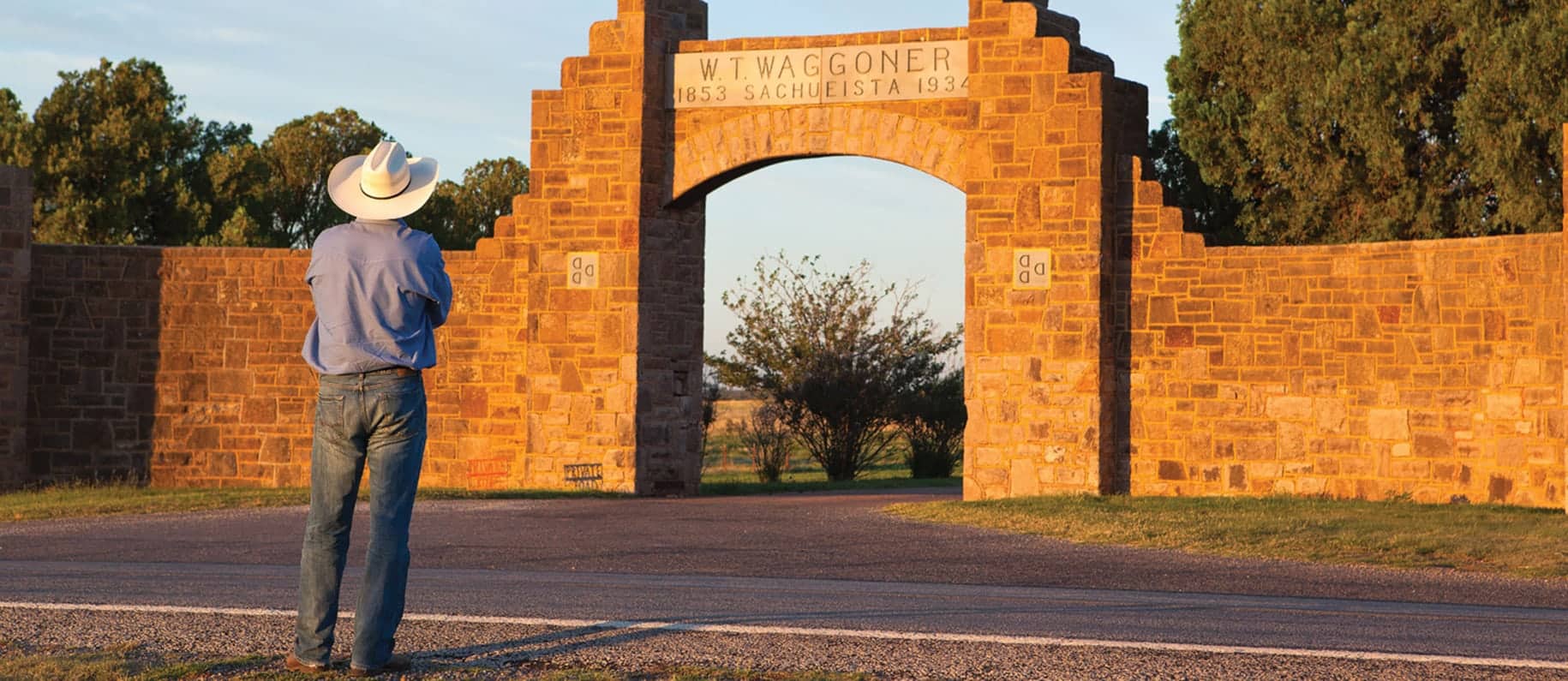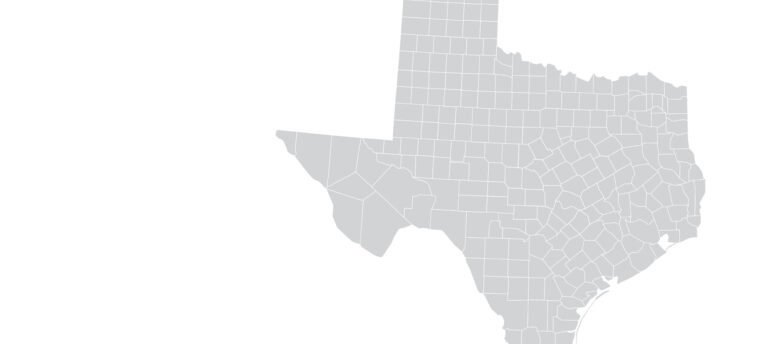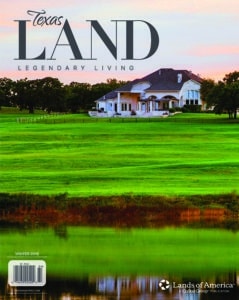
2016 will go down as a banner year for Bernard “Bernie” Uechtritz. First, there was the historic and record-breaking sale of the Waggoner Ranch and a slew of industry awards. Second, Icon Global launched and has already almost single-handedly set a transactional benchmark of a billion dollars (and counting) of production in real estate.
Bernard “Bernie” Uechtritz, founder of International Icon Properties Group (www.ICON.GLOBAL) based in Dallas, refuses to be boxed in by convention. “I’ve always been an out of the box kind of guy,” said Uechtritz, who is also an International Real Estate advisor for Sotheby’s. “I’m really just a mongrel-bred kid from a colorful family, who had a wild, adventuresome youth in the jungles and kunai grass plains of Papua New Guinea (PNG). I was never a good scholar or a rule follower because I’ve never been good at sitting still or staying in the lines.”
Bernie and I had vastly different styles and backgrounds, leading some to call us the “Odd Couple.” However; he is a team player, thoughtful, organized, creative and forward thinking, with a positive take charge attitude, and he was always focused on one goal, consummating the sale of the Waggoner Ranch. – Sam Middleton, Uechtritz’s sale team partner
His innate willingness to stray outside the accepted boundaries and confines of traditional real estate marketing is, in Uechtritz’s opinion, part of the key to his 30-year career as one of the real estate industry’s “go-to fixers”. A partial list of his more publicly, known successful deals in Texas includes: selling Camp Cooley Ranch, in the midst of multilayered bankruptcy proceedings, which in 2011 was the largest sale by price in Texas history; and recently spearheading the Global marketing strategy of the 535,000-acre Waggoner Ranch, which at $725 million is the largest ranch sale to date in U.S. history.
Another Texas deal that looms large in his memory is the former HTC Ranch in east Texas. Uechtritz successfully outmaneuvered a repeatedly resistant and remorseful seller who had for years stonewalled and thwarted several prior buyers’ attempts to close, including one buyer, who was so determined to prevail he took the seller all the way to the Texas Supreme Court on a specific performance suit, only to lose.
Recent Awards for Bernie Uechtritz
SOTHEBY’S INTERNATIONAL
Highest Sale In The History of Sotheby’s International W. T. Waggoner Estate, 2016
DALLAS BUSINESS JOURNAL
- Top Land Deal Of The Year, 2015
- Top Land Broker Of The Year, 2015
FORT WORTH BUSINESS & CEO
- Top Real Estate Industry Winner, 2016
LAND MAGAZINES
- Land Star Award – Special Recognition
THE LAND REPORT
- Deal of the Century, 2016
Deal of the Year: Camp Cooley Ranch, 2011
Years later, in 2006, in a deal to sell to Uechtritz’s client, the seller got up to his old tricks again and tried to wiggle. However, as real estate attorney Robinson stated, “When the seller started playing checkers, Uechtritz played chess and closed the deal.”
Uechtritz professes to love thinking outside of the box, whether it’s on the buy or sell side of complicated deals.
“Handling complicated deals—those with high public profiles as well as those that by design and confidentiality agreement are conducted behind closed doors and whose details will never see the light of day—is a niche that I fill,” Uechtritz said.
As a serial entrepreneur, Uechtritz launched Icon Global to formalize and expand on what he has been doing globally for years, which is running a highly specialized practice in the world of complex real estate of all kinds.
I can say without equivocation that the sale of the assets of the estate would not have occurred, in the successful manner it did, without the expertise, skill and herculean efforts of Bernie Uechtritz. The details could fill a book… – Counsel Mike Baskerville, court-appointed receiver for the W. T. Waggoner Estate
A part of Icon Global’s model is aligning with and providing other brokers an international face and brand, global marketing reach, savvy and network resources, which a local broker may not have. The goal? To lead and co-list bigger or out-of-scope deals delivering to a seller a can do global strategy with good boots on the ground local knowledge. A case in point was his partnering with West Texas broker Sam Middleton on the Waggoner Ranch.
Then, recently, Icon Global brought to market 3 North Texas farms under the Icon Global Co. marketing alliance program bringing in Bryan Pickens and Jeff Boswell of Republic Ranches. Subsequently, Republic then turned to Uechtritz to team up and engage in another high-end lead and listing pitch where in these sellers required an international marketing exposure and platform. The result-another $50–100 million dollar Icon Global listing.
“I’ve been fortunate to earn a reputation as a ‘go-to, can-do guy’ because I firmly believe there is no one-size-fits-all approach to real estate sales,” Uechtritz said. “Icon Global formally delivers the same customized service as I always have, backed up by a deep bench of savvy players and a global network who have expertise in different nuances and different areas of the marketplace. I simply form and lead different teams for different projects. I create think tank alliance’s and relationships to best position and get a client’s property across the line.”
The fresh approach has been welcomed in the marketplace. Uechtritz anticipates the company’s 2016 transactional inventory will be close to $1 billion by year’s end. The firm focuses on the “super asset” class of deals that generally start around $50 million and other outstanding deals that fit Icon Global’s criteria for representation.
“I’m only smart enough to realize that I need to surround myself with people who are smarter than I am,” Uechtritz said. “When it comes to administration, expertise and international reach, Icon Global’s mission is to be the Seal Team 6 of real estate. I create a plan, strategically and tactically, to pre-position in the market place, go in, get out, close the deal and then…next!”
By tapping into a global network of talent that he’s built for years and continues to add to annually, Uechtritz has been able to leverage an unprecedented level of expertise. For instance, when international aluminum giant Alcoa decided to sell its 34,000-acre property in Central Texas which was the former site of the nation’s largest aluminum smelter as well as an industrial electrical generation station, reclamation lands, mining and unprecedented water rights, the company issued an RFP with extensive requirements. Uechtritz responded with a detailed marketing plan, including re-branding the property as “Sandow Lakes Ranch,” and convening what he pitched as “The A Team,” a group including legal, and other niche professionals on water rights, industrial uses, reclamation, mineral rights and more.
Icon Global landed the opportunity to market one-of-a-kind Sandow Lakes Ranch with a price tag of $250 million.
“Sandow Lakes Ranch is fantastic multi-use property, and it will be the biggest water rights deal done in Texas to-date,” Uechtritz said. “Water is the new oil in Texas and globally—and I like that because it’s both an intellectual and marketing challenge, with its combination of water rights, reclamation, remediation as well as industrial uses and leasing, Sandow Lakes Ranch may be my most complex deal so far. I’m learning a lot.”
The recognition that he doesn’t—and can’t—know it all is not only the foundation of Icon Global, but his working relationship with sophisticated clients.
“At the level where I ‘play,’ the buyers and sellers are already incredibly successful at something,” Uechtritz said. “They’re smart. I never bluff. If I don’t know something, I say ‘I don’t know, but I’ll find out.’ Icon’s network of experts just helps me find out, solidly and quickly. If your clients can’t trust you or your advice, you’re out of business.”
While the Sandow Lakes’ commission check will be sizable, it will pale in significance to the feeling of doing something good for his fellow Texans.
“The thrill I get today doesn’t come from the fee, but from the knowledge that I delivered something of value to society,” Uechtritz said. “Like keeping the Waggoner intact, the water rights that come with the Sandow Lakes Ranch will directly serve humans as a water source for consumption and for agriculture. It’s going to make a difference, and to be a part of that is satisfying.”
THE AMERICAN DREAM
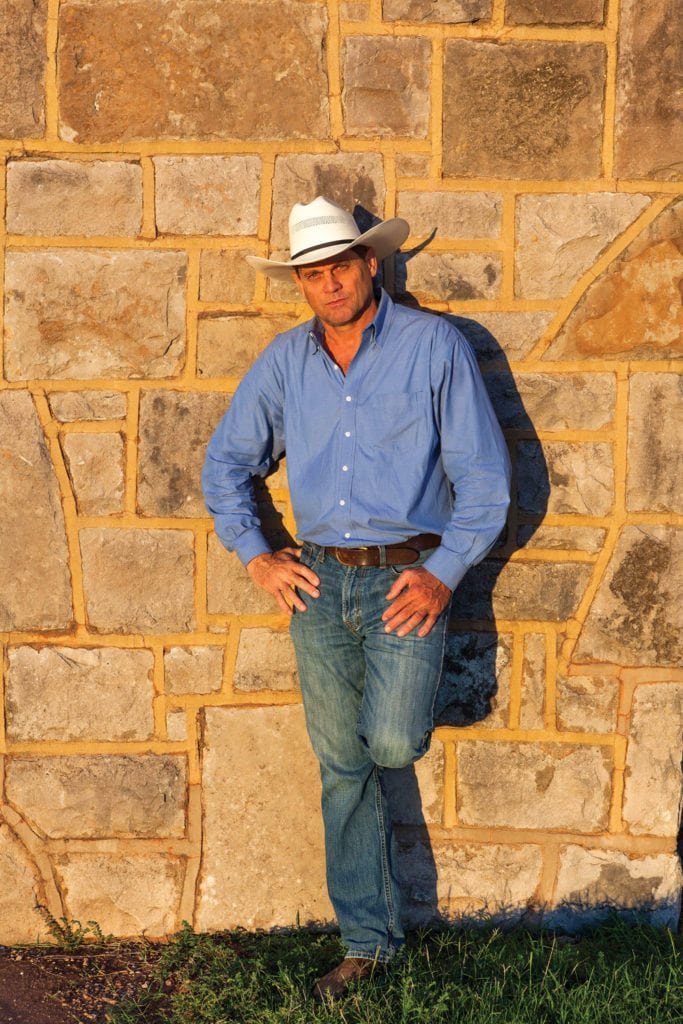 Uechtritz looks like native Texas cowboy, but his accent gives him away. In fact, Bloomberg Business wrote, he is “a blue-eyed, square-jawed, 50-year-old who can pass for the Marlboro Man—until he greets you with ‘g’day’ in his Australian accent.”
Uechtritz looks like native Texas cowboy, but his accent gives him away. In fact, Bloomberg Business wrote, he is “a blue-eyed, square-jawed, 50-year-old who can pass for the Marlboro Man—until he greets you with ‘g’day’ in his Australian accent.”
“I admit that my Australian passport, PNG heritage and accent have been door openers for me, but hard work, long days and innovation got me the rest of the way,” said Uechtritz.
Uechtritz traces his PNG lineage from his great-grandmother and famed botanist and writer grandfather Richard and wife Phebe Parkinson, and his great-aunt “Queen Emma” Coe (Forsyth), mixed-blood American Samoan and German pioneers who brought agriculture in the form of cattle ranching as well as coconut and ocoa plantations to New Guinea.
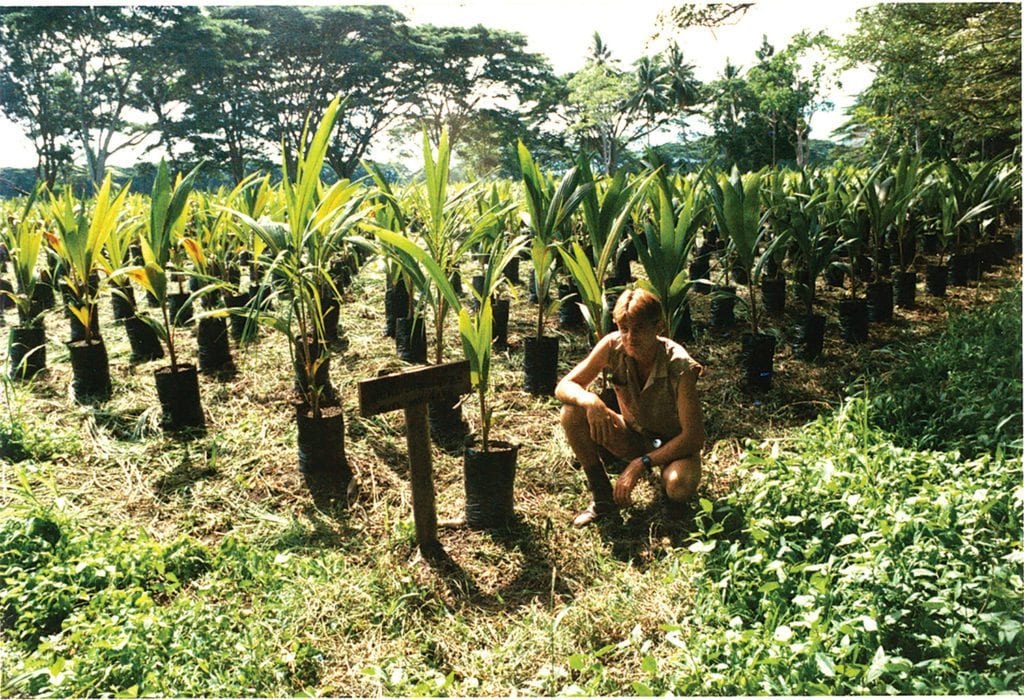
Uechtritz is a third generation New Guinean, the eighth child of Alfred Max and Mary Lou Uechtritz, who had seven boys and four girls.
Growing up in New Guinea and Australia and managing cattle stations and large labor forces early from about 17 years old taught Uechtritz how to negotiate early and often.
Previously, in boarding schools across Australia, Uechtritz honed his negotiating skills in front of headmasters and disciplinary committees. He left school in the 10th grade. He then enrolled in an animal husbandry program at a junior college in the Outback, which was designed to prepare young people to run a cattle or sheep station.
Uechtritz left the program a year early and returned to New Guinea, where he worked at a gas station near the gold mines in the Highlands. Then, he got a job breaking horses on a ranch. Before long, he had been promoted to assistant manager.
“When the manager left, I got promoted again,” Uechtritz said. “I worked there several years and transformed part of the cattle ranch into a coconut, cocoa and oil palm plantation. It’s still highly successful and sells its cocoa exclusively to a French chocolate company.”
On the cattle side, he managed about 4,000 head and implemented the first large-scale artificial Insemination (AI) program for PNG, breeding European Charolais semen over gray Brahman and Santa Gertrudis cows.
“First try out of the gate, I inseminated 300 cows,” Uechtritz said. “Big mistake! It was overwhelmingly exhausting and took months. Later, I learned that most people take 10 or 20 cows at a time and develop a program from there.”
About the time he turned 22, he decided to see the world. America was his first stop. He arrived in Kentucky with an AI certificate, a saddle, a Polocrosse racquet, a thousand dollars and big dreams.
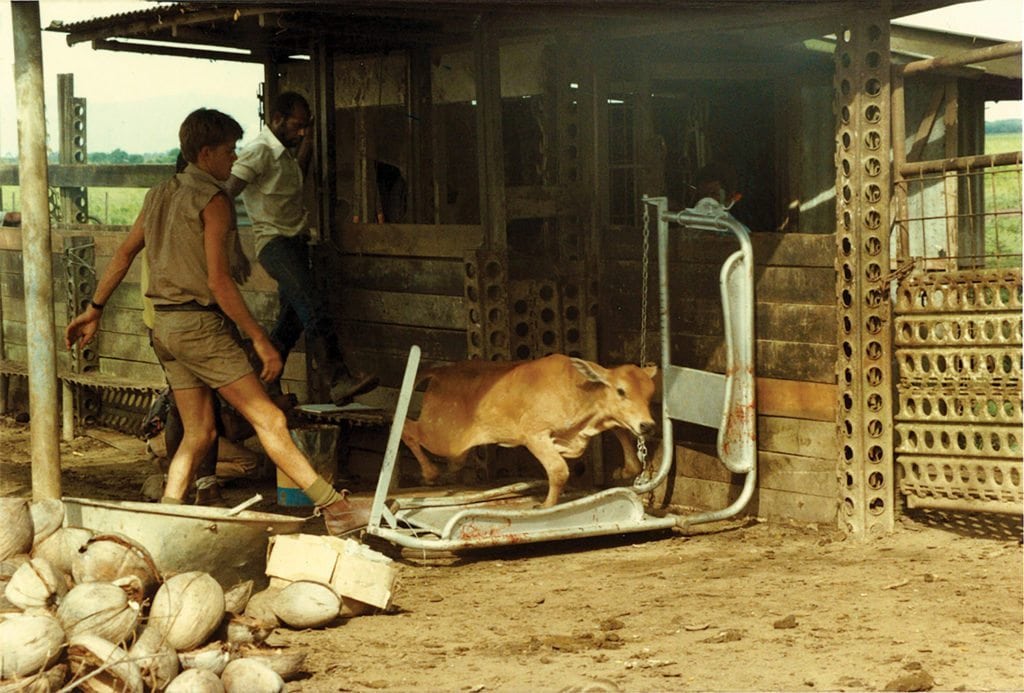
“I grew up watching John Wayne at the town movie matinée on a Saturday once a month about 50 miles from our station,” Uechtritz said. “He was a cowboy in the morning and a Marine in the afternoon—a hero in a nation of heroes. America loomed large in my imagination. Further fueling my fascination with America; our fondest family hobby as kids was searching for World War II relics across mountains, jungles and swamps of New Guinea. Among many such finds, my father and brother once found air crew remains in a B24 Bomber resulting in loved ones being returned home 40 years later to Texas and Oklahoma. Eleven families found solace in the closure to the mystery of their boys who went to the South Pacific and until then had never came home. Later, Dad and Gordon were honored by the US Army for their role.
Plus, his sister and brother-in-law lived in Lexington, Kentucky, where they worked in the thoroughbred industry. Never one to shy from hard work, Uechtritz pumped gas, built fences, rebuilt horse barns and even had a short stint as a rock station radio DJ, doing “whatever it took” to stay in the states.
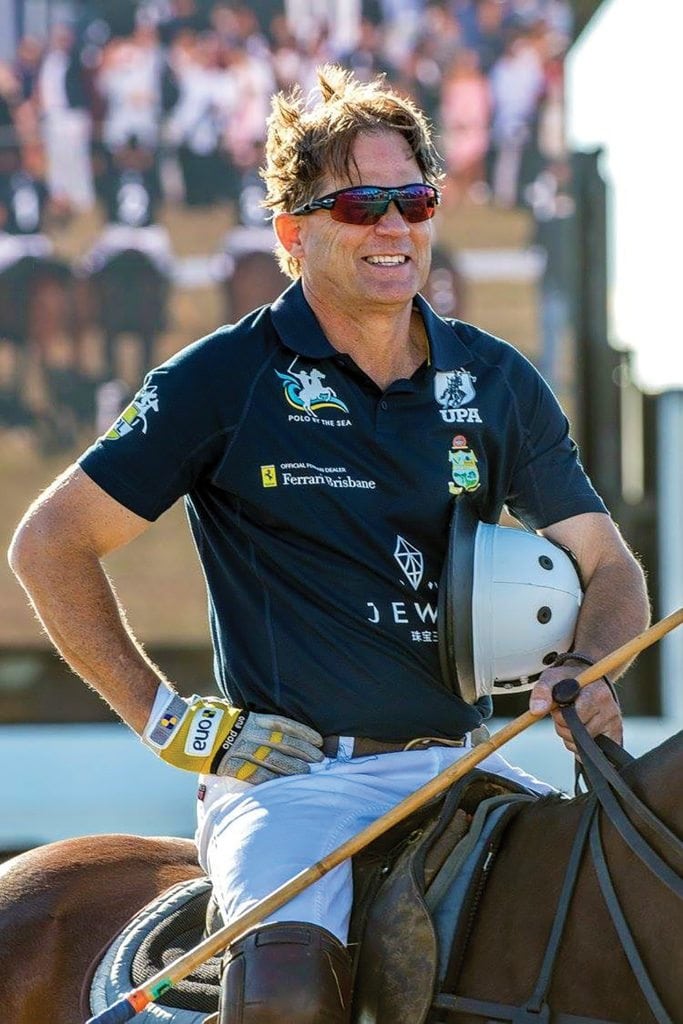 He also began promoting Polocrosse, an Australian equestrian sport that combines polo and lacrosse and has been called “rugby on horseback.” It took him across the country, as did his passion for polo, which he began playing in 1991. Polo was big in Southern California, especially in areas around Malibu and Santa Barbara.
He also began promoting Polocrosse, an Australian equestrian sport that combines polo and lacrosse and has been called “rugby on horseback.” It took him across the country, as did his passion for polo, which he began playing in 1991. Polo was big in Southern California, especially in areas around Malibu and Santa Barbara.
Uechtritz’s American walkabout ended in sight of the Pacific Ocean. He found himself surrounded by beauty, luxury residential real estate and unexplored opportunities.
THE UNIVERSITY OF REAL ESTATE
Uechtritz obtained his real estate license in 1993.
“On its face, real estate was simplistic—very much like buying and selling horses and cattle,” Uechtritz said. “As a young man, I thought, ‘I can get my head around this.’ I barely got out of the tenth grade, so for me to earn my real estate credentials 10 years later was like being a Rhodes scholar. I’ve been going to the university of real estate ever since.”
Real estate in Southern California was in the doldrums in 1994 when Uechtritz began to use his newly earned credentials. The market downturn created the opportunity to purchase RE/MAX franchises, which he did. He bundled the franchises, but only operated a single office. A couple of years later, as the market recovered, he sold them.
THE VALUE OF A HANDSHAKE
By 2004, the fast-paced life in California had lost its glitter. Uechtritz and his wife, Annie Macdonald, who grew up in a Central Texas ranching family, had four children. The couple wanted to raise their kids in a place where they’d have their “feet on the ground.”
“In Texas, handshakes tend to be considerably more reliable than they are in California,” Uechtritz said.
The combination of the values and a land ethos with the presence of Annie’s family made the Lone Star State a natural destination. The family has lived in the Dallas area for the past 12 years and has no plans to ever leave the state.
While Uechtritz’s hands-on experience in agriculture made ranch real estate a natural fit, he didn’t immediately join the industry; instead, he focused his attention on broadcast and internet television for two years. Then, in 2006, he completed a complicated deal for what is now the Texas Rose Horse Park near Tyler Texas.
The market slump of 2007–2009 kept him from being fully engaged in the industry. He reentered full-time in 2010. In 2011, he sold Camp Cooley Ranch—and the rest, including the Waggoner Ranch and now Sandow Lakes Ranch, is, as they say, history. (By the time this story is published, Uechtritz will have gone public with another $200 plus million in listings.)
While his professional story continues to be written, Uechtritz enjoys sharing what he’s learned with other industry professionals.
“I like problem solving with my colleagues,” Uechtritz said. “This business has been good to me. I hope to be a change agent and good steward of the opportunities and knowledge I’ve been given.”
An Aussie’s Take on Texas Land
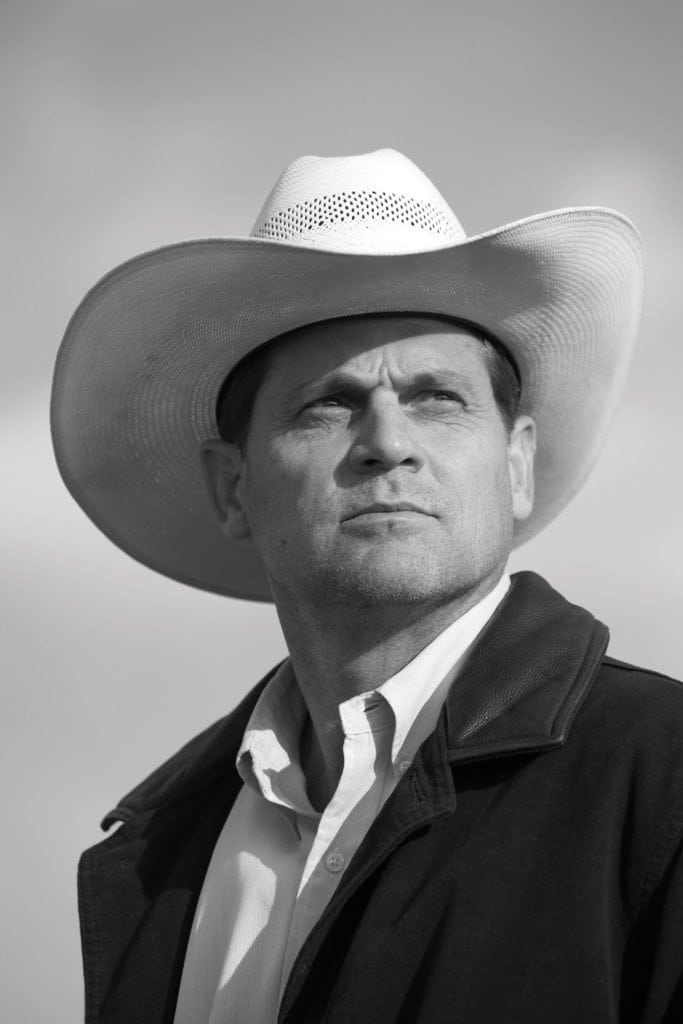
“What makes Texas land different than land anywhere else is a mix of things. Here there still exists a sense of romanticism, westernism, pioneerism and individualism. It’s the fabled great state in the middle of the country, rich with the lore of iconic ranches like the King, the Waggoner and the 6666.
Here the land shaped the people as surely as the people shaped the land. There is a sense of freedom and a respect for land ownership that has almost disappeared in places like California and Oregon. Texas has open spaces, big sunsets and handshakes that mean something. When you’re out in the real country, there is a value system that is based on honesty, integrity, hard work and concern for the community. It’s an ethos much like that of the Australian agricultural community.
Again, it’s a mixture of things that are very critical and disappearing rapidly, which makes it very special and rare. These intangibles add real value and a great inducement to investment and ownership for foreign buyers—those who live out of state and those who live out of the country. Everybody wants a little piece of the last of the West. They find that in Texas.”
While the REMAX endeavor foreshadowed his ability to single out overlooked opportunities, another deal demonstrated what would become the trademark of his career, the ability to sell “white elephants.”
In 1989, the Lyle and Erik Menendez headline-grabbing murder of their parents resulted in their lifetime imprisonment and liquidation of all property owned by the family estate. The Calabasas Menendez Mansion, as it was known then, languished on the market for five years despite the efforts of a series of California’s superstar realtors. Uechtritz, a young untested realtor, was brash enough and persuasive enough to convince the conservators and lawyers to give him a chance to market the property. He sold and closed the mansion within 90 days.
From that experience, he recognized some key elements that makes selling “impossible” properties possible.
“Usually you have to spin ‘stigmatized’ properties 180 degrees from where they were,” he said. “You have to look at who the buyer is and where they are going to come from. Then you have to create a competitive environment and a closing window of opportunity.”
His phone began to ring. In addition to a burgeoning specialty of selling distressed properties, Uechtritz also formed Front Gate Properties, a firm specializing in high-end developments in Hidden Hills, Calabasas, Malibu, and Beverly Hills.
“I worked in that market for 15 years,” said Uechtritz, noting the early 90s were tough because most of the high-end homes in California were upside down. “In those days, the big deals were $500,000 to $5 million. I learned a lot about the business and about people.”
A Passion for Polo
“Throughout it all, I’ve maintained a passion for polo. I didn’t get to play much the past two years because of the Waggoner deal, but I’ve tried to make up for it. This year we launched Icon.Global Polo. My daughters and son now also play.
So far, we’ve played in Santa Barbara, California, Chicago, Texas and Australia, and have had a great season. I will also be returning in December to compete in the 2016 Aspen World Snow Polo championship to defend our feature match title of last year. (www.AspenValleyPoloClub.com)
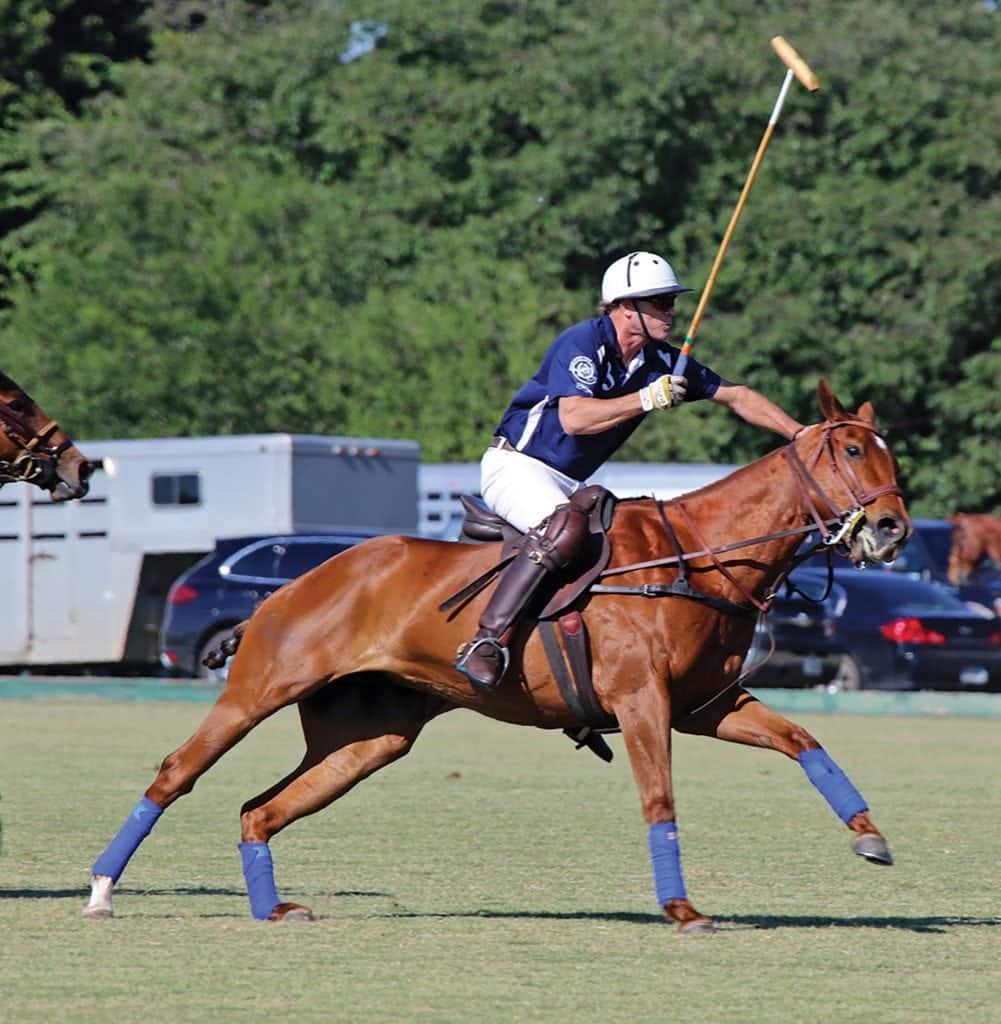
More importantly, though, polo provides a platform for philanthropy. Part of our team’s mission statement is ‘to be involved in human, animal and environmental causes.’ We participate in any event we can that supports one of these causes.
Polo has also become an integral part of my real estate business. It offers marketing avenues as well as incredible networking opportunities. This past year, we’ve even hosted some polo and polocrosse events on ranches we were representing. These events generate publicity while creating a social event where lenders, brokers and potential buyers can mix and mingle. It’s a win-win for everybody. “
Thoughts on the Ranch Real Estate Industry
“The industry has advanced in terms of technology and adaptation of technology, which makes it easier to ‘show and tell’ at lightning speed.
However, I don’t think it’s advanced nearly as much in terms of the professional mentality. It seems to me that the ‘herd mentality’ still rules, and I attribute that to the Big Box business codependent model that still dominates the industry. I think we can all serve our clients better by being less bureaucratic, more fleet of foot, nimble and flexible.
Today’s industry requires more knowledge than ever before. It’s one thing to sell a cookie cutter or mansion in a conforming neighborhood. It’s something entirely different to sell a ranch that might have water rights, wind turbines, mineral rights, pipeline easements, utility easements, livestock operations, hunting, fishing and lease agreements as well as dams, impoundments, wetlands and endangered species. It can be a complicated stew in one property and that property doesn’t have to be 535,000 acres. You can find a complex stew on 5,000 acres or even 500 acres.
On the reciprocal side, buyers and sellers—and their teams of experts—are much savvier and informed than they were 20 years ago. There are now so many layers of expertise on both sides of the deal that you can’t know it all—and you better not try to pretend you do.
These days, food security is more than a geopolitical buzz word. Savvy investors understand these large-scale, multi-faceted, productive properties are going to become critical in the future. They are in an asset class all by themselves. I think they’re a super asset class, and this type of asset and required expertise is my focus and where I like to play.
Smart money always buys and hedges in land. They’re not making any more of it, so it’s only going to appreciate.”
[envira-gallery id=”979″]
This article appears in the winter 2016 issue of TEXAS LAND magazine. Visit www.landmagazines.com to read more and subscribe to future issues of both LAND magazine and TEXAS LAND magazine.
